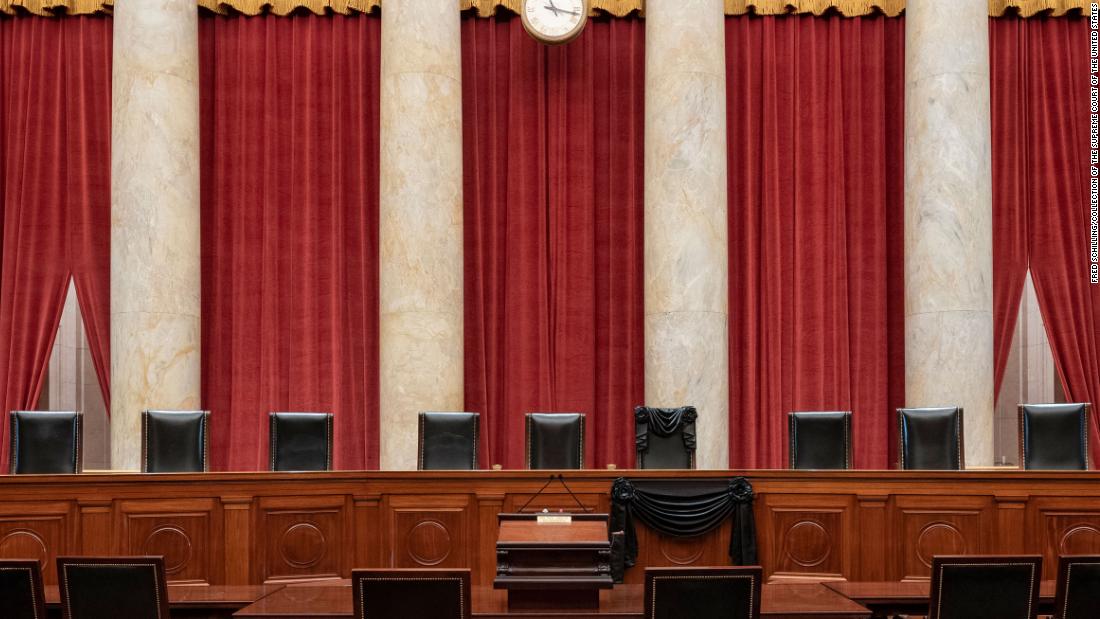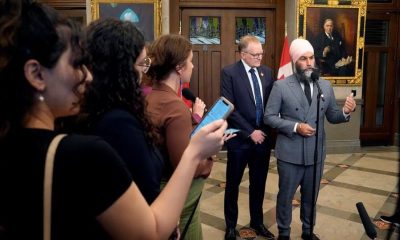The US President now plans to make
a third pick for the nine-person bench on the highest court in the land. He will almost certainly enshrine an unassailable 6-3 conservative majority on the Supreme Court, which means that political change launched by any future Democratic presidents and Congress could be undone by the Court’s constitutional interpretations — no matter what the majority of the nation wants.
Appointed for a lifetime, justices can change over the years, sometimes in a way that surprises and annoys the presidents who nominated them. They are also supposed to respect precedent, so it’s impossible to say how the high court will behave on all issues.
But there is now a very real prospect that a woman’s right to an abortion, guaranteed by the 1973 case Roe v. Wade, could be overturned or limited. A conservative-dominated Supreme Court could also roll back future attempts to regulate gun laws, hinder attempts to regulate polluters in the fight against climate change, and embolden challenges to legislation on voting rights and outlawing racial discrimination. And fear is growing among supporters of same sex marriage, only legalized in 2015.
Former President Barack Obama’s signature health care law, which allowed millions to buy insurance plans, already looks to be in trouble. The court will hear the Trump administration’s attempt to kill it off after the election. Even if Trump’s latest pick is not yet in place and Chief Justice John Roberts votes to save the law for a third time, a potential 4-4 tie among justices would mean a lower court ruling invalidating it would stand.
Demographic trends in the United States look unappealing for Republicans; there is a strong argument that the country will become more secular, urban, socially liberally, and racially diverse in the next few decades. But a conservative Supreme Court could be a bulwark against political change — one reason why conservatives have spent several generations working toward building this majority and why Democrats will long curse their failure to beat Trump in the 2016 election that opened the way to this extraordinarily important moment.
‘What was then a hypothetical is now a reality’
Two Republican senators so far have said they would
oppose taking up a Supreme Court nomination before Election Day — Sen. Lisa Murkowski of Alaska and Sen. Susan Collins of Maine. “For weeks, I have stated that I would not support taking up a potential Supreme Court vacancy this close to the election. Sadly, what was then a hypothetical is now our reality, but my position has not changed,” Murkowski said Sunday. “I did not support taking up a nomination eight months before the 2016 election to fill the vacancy created by the passing of Justice (Antonin) Scalia. We are now even closer to the 2020 election — less than two months out — and I believe the same standard must apply.”
Battles ahead
The two most divisive, tumultuous events in American politics — a Supreme Court nomination battle and a presidential election — are about to take place at the same time.
The President is expected to
name his nominee to replace Ruth Bader Ginsburg this week. He has promised to name a woman, and Republicans will rush to try to get her onto the bench either before November’s election or shortly afterwards.
Democrats are furious, rightly accusing Republicans of gross hypocrisy: In 2016, when conservative Justice Scalia died in February of that year —months before the election — Senate Majority leader Mitch McConnell refused to even consider then-President Barack Obama’s nominee, saying voters should ultimately decide who should get to fill the vacant seat. Now, with a Republican in the White House and the election just 44 days away, McConnell is refusing to apply the same principle.
The Kentucky senator’s power play four years ago turned out to be one of the shrewdest and most ruthless moves in modern American politics, paving the way for the court’s conservative majority. There’s little Democrats can do to stop McConnell pressing ahead. Even if Joe Biden wins the election and Democrats win back the Senate in November, McConnell could still plow onward to confirm Trump’s pick in a lame duck session of Congress before new lawmakers arrive in January.
That prospect has some Democrats — who believe the chance of building a liberal majority on the nation’s top bench has been stolen from them, are thinking of nuclear options — like expanding the size of the court itself if they win back the Senate.
The sudden Supreme Court fight could also have unpredictable knock-on effects on the election itself. It will allow Trump to try to take the focus off the pandemic and to solidify his standing among evangelical and socially conservative voters who might frown at his morals — but for whom a conservative Supreme Court is a life and death voting issue. But reviving the fight over abortion in the nominating battle may alienate suburban women voters Trump needs to win a second term (they are already moving away from him) and vulnerable Republican senators might prefer not take a stand on an issue that could anger the moderates they need for survival. Meanwhile, the vacancy has already electrified the left and could drive more Biden voters to the polls.
‘Nobody’s buying this’
Sweeping UN sanctions have now been placed on Iran — according to the US and literally nobody else. As other signatories to the Iran nuclear deal point out, the Trump administration’s invocation this weekend of sanctions from the JCPOA holds little legal power, since the US quit that very same deal more than two years ago. “The whole world is saying that nothing special has happened. Mr. (US Secretary of State Mike) Pompeo’s fantasy, he is fantasizing this. He wants to make everyone believe this but nobody’s buying this,” said Iranian Foreign Minister spokesman Saeed Khatibzadeh at a Sunday press briefing in Tehran. But the question is how far the US might go to enforce that “fantasy.”































